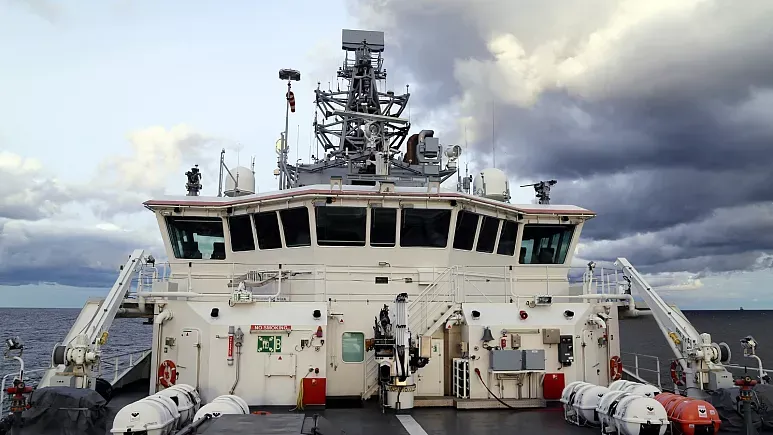Sweden and Estonia Probe Cable Damage: Suspicions Point to Sabotage as Chinese Vessels Come Under Scrutiny
Recent incidents in the Baltic Sea have caused alarm as an undersea telecommunications cable linking Sweden and Estonia suffered partial damage. This disruption, located about 50 kilometres off Estonia's Hiiumaa island, might have occurred simultaneously with damage to a gas pipeline connecting Finland to Estonia, igniting concerns of

Recent incidents in the Baltic Sea have caused alarm as an undersea telecommunications cable linking Sweden and Estonia suffered partial damage. This disruption, located about 50 kilometres off Estonia's Hiiumaa island, might have occurred simultaneously with damage to a gas pipeline connecting Finland to Estonia, igniting concerns of potential sabotage.
The situation becomes even more intricate as, while initial suspicions were directed at Russia, attention has now turned to Chinese vessels operating in the Baltic Sea at the time of the disruptions. Authorities are investigating whether the proximity of these vessels to the pipelines might have had a role in the damages.
Finland had already initiated an investigation last week into a potential sabotage of its gas pipeline to Estonia. These recent events evoke memories of damages inflicted on the Nord Stream gas pipelines that connect Germany and Russia in the Baltic Sea a year ago. Those incidents were believed to be acts of sabotage and remain unresolved.
Carl-Oskar Bohlin, Swedish Civil Defense Minister, confirmed the damage to the cable link between Sweden and Estonia but did not speculate on its cause. "The damage is partial, and we're yet to determine its root cause," said Bohlin.
Service to the disrupted cable in Estonian waters was thankfully restored within days, as reported by Estonia's Economy Ministry.
As the matter escalates, Swedish Defense Minister Pål Jonson emphasised close coordination with Estonia's defense and security agencies. The safety and security of critical infrastructure are now at the forefront of Sweden's concerns.
Estonian Defense Minister Hanno Pevkur emphasized the need to ascertain the precise nature of the cable failures and their potential links to the damages on both the telecommunications cables and gas pipelines.
Swedish Prime Minister Ulf Kristersson highlighted the essential nature of the vast network of cables on the Baltic seabed, vital for data traffic. Referring to increasing threats to civilian infrastructure, he mentioned past attacks on primary utilities in nations like Ukraine.
In light of the Nord Stream incidents, where explosions believed to be sabotage preceded four discovered leaks, both Sweden and Denmark labeled them as sabotage acts.
Given the history of similar incidents in the Baltic region and the current suspicion around Chinese vessels, the outcomes of these investigations will undoubtedly draw significant international attention.




